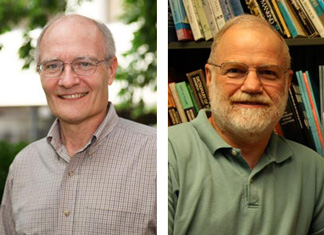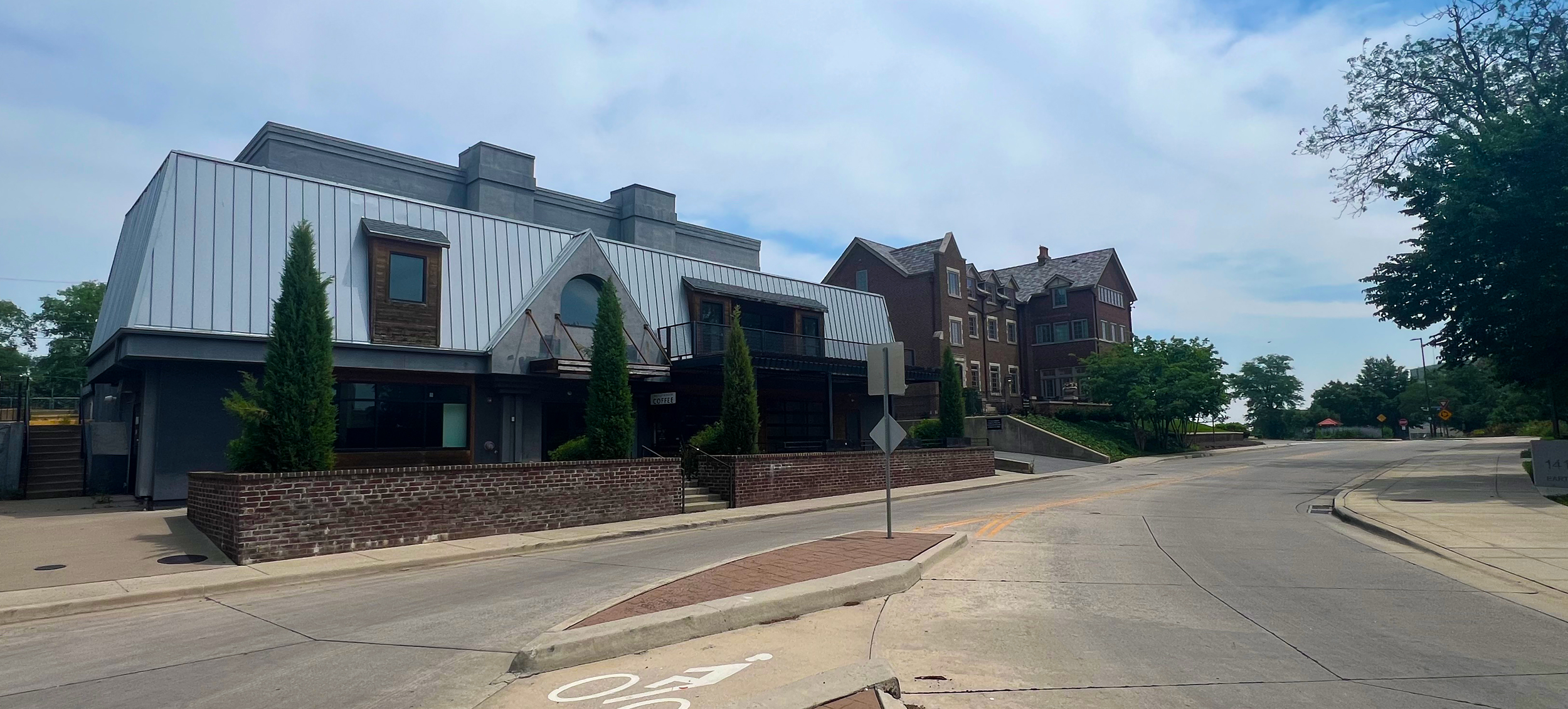KU Giving Magazine
Professors selected for Chancellors Club awards
September 22, 2009

A genetics researcher from the University of Kansas Medical Center and a geography professor from KU’s Lawrence campus have been named the 2009 recipients of the Chancellor’s Club award for their research and teaching.

James P. Calvet and James R. (Pete) Shortridge will be honored Oct. 9 at the annual Chancellors Club celebration. Each will receive a $7,000 award.
When Calvet joined the KU Medical Center’s faculty in 1981, he was heralded as the first molecular biologist on that campus. His research focuses on polycystic kidney disease, a genetic disease that strikes one in every 500 to 1,000 people. The disease is marked by thousands of fluid-filled cysts inside the kidneys that can enlarge and prevent the kidneys from functioning.
Dale Abrahamson, chair of the Department of Anatomy and Cell Biology, said Calvet has been widely regarded as working at the forefront of breakthrough research for many years. “He is one of the foremost scientists in PKD research at KUMC,” Abrahamson said. “His group as a whole is recognized nationally and internationally as one of the most productive research teams in the field.”
Abrahamson noted that Calvet’s lab has received millions of dollars in grants from the National Institutes of Health and other agencies: “This has enabled him to make important progress in PKD research, as well as train numerous graduate students and postdoctoral fellows and to mentor junior faculty.”
Jared Granthan, M.D., is a clinical scientist who has worked with Calvet since the 1980s. “His work has unmasked the underlying cause of abnormal cell growth that promotes renal cyst formation in most types of PKD,” Grantham said.
Calvet’s discoveries have led to clinical trials of new drugs. “We hope these are going to slow down the growth of the cysts,” Grantham said. “They work beautifully in experimental animals. If humans will cooperate a little bit, we may have something that will be helpful with PKD.”
Grantham said researchers such as Calvet inspire other researchers to stay at the Medical Center. “Researchers stay in places like Kansas because they have opportunities to interact with these sensationally bright people,” Grantham said. “There are incredible scientists here, they love their science and have a passion for it.”
James Shortridge has taught geography at KU since 1971. “I was raised as a soda jerk and had aspirations to follow the pharmacist life of my father and grandfather. Then came college and the discovery of new possibilities in the study of place and place meaning,” said Shortridge.
Reared in Pleasant Hill, Mo., he earned his undergraduate degree at Dartmouth College. He returned to the Midwest to study geography at KU, where he earned his master’s degree in 1968 and his Ph.D. in 1972.
Terry Slocum, chair of KU’s geography department, is currently on sabbatical. He praised Shortridge for his open-door policy for students and for his gift of inspiring students to think creatively on their own.
Slocum described Shortridge as a prolific mentor of graduate students. At the end of the 2011-12 academic year, Shortridge will have directed a total of 87 students through their master’s and doctoral theses — the most of any professor in the department’s history.
Johan Feddema, who is acting chair of KU’s geography department, described Shortridge as an exemplary scholar, as well as teacher. Shortridge has authored six books, dozens of major articles and book chapters, numerous encyclopedia contributions and other brief studies.
“He’s really a star in our department in terms of his scholarly background,” Feddema said. “His research on settlement patterns on the Great Plains and how these communities come about and grow is nationally recognized. It helps us to understand where we live and how our society evolved, as well as the environment. We often forget what was there and we don’t necessarily think about what’s to come.”
The Chancellors Club was established in 1977 by KU Endowment, the independent, nonprofit organization serving as the official fundraising and fund-management organization for KU. Founded in 1891, KU Endowment is the oldest foundation of its kind at a U.S. public university.
Posted on
September 22, 2009
Share this article
Connect with Us




